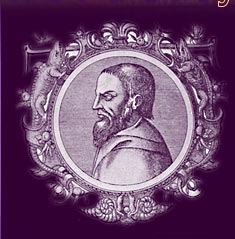












|

Aristotle's blood-centered understanding of heredity probably spawned the terms "bloodline" and "blueblood" (from the color of veins), which refer to lineage.
|
 |

384-322 B.C. Aristotle
Aristotle's understanding of heredity, clearly following from Pythagorean and Empedoclean thought, held wide currency for almost 2,000 years. The Greek philosopher correctly believed that both mother and father contribute biological material toward the creation of offspring, but he was mistakenly convinced that a child is the product of his or her parents' commingled blood. Semen, Aristotle held, was a man's purified blood, which could engender a child when coupled with menstrual blood inside a woman's body.
|
 |